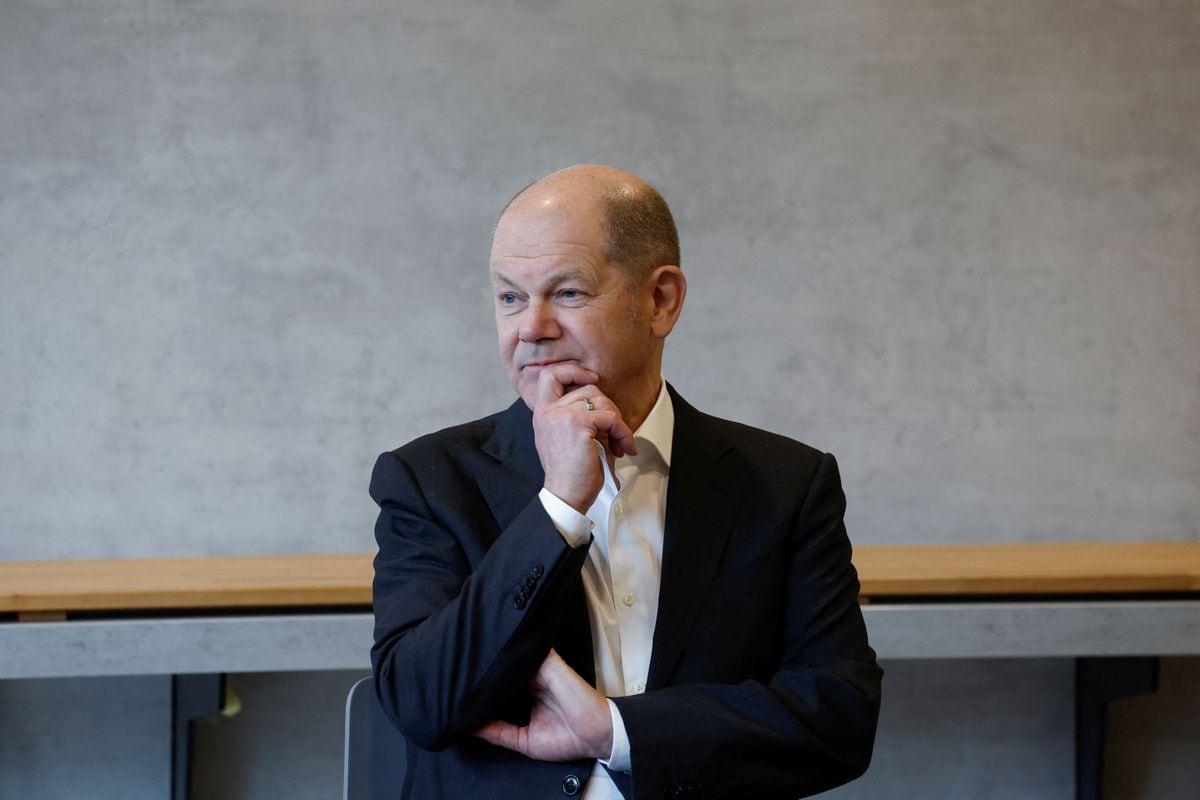Because of Omikron: Germany's economy is shrinking again
Created: 01/28/2022, 17:35
The German economy contracted surprisingly sharply at the end of 2021.
(Iconic image) © Carsten Koall/dpa
The German economy contracted surprisingly sharply at the end of 2021.
Now a temporary recession is even threatening until spring.
Berlin – Delta and Omikron, inflation and delivery problems: this cocktail was poison for the German economy at the end of 2021*.
Between October and December, the economy shrank surprisingly sharply by 0.7 percent compared to the previous quarter, as the Federal Statistical Office announced on Friday.
Habeck: "We have a robust economy"
Now there is even a threat of a temporary recession, before the economy should gradually shake off the virus pandemic from spring as the incidence falls.
Federal Economics Minister Robert Habeck spoke of subdued momentum at the beginning of the year, but was confident for 2022. "We have a robust economy and a stable labor market." This year the economy will increase by 3.6 percent and in 2023 by a further 2.3 percent.
In mid-January, the statisticians had estimated a decline in gross domestic product (GDP) of 0.5 to 1.0 percent for the end of 2021 in a first rough estimate.
After the recent positive economic data, economists had only expected a minus of 0.3 percent.
Chief Economist: "The downward pull was enormous"
"The downward pull was enormous," said chief economist Thomas Gitzel from VP Bank.
“The German economy was stuck in the corona and material shortage trap.” The high rate of infection * and the restrictions had once again put a strain on the service providers.
The statistics office explained that the economic power had grown in the summer despite supply and material bottlenecks.
"The recovery of the German economy was stopped by the fourth corona wave and renewed tightening of the corona protection measures at the end of the year."
In particular, consumer spending fell while government spending increased.
Construction investments fell compared to the summer.
Consumers should bring the change
It is precisely the consumers who should bring the change.
If they recently had to hold back from going to the cinema, theater and restaurants as well as shopping, the knot could soon burst.
“As soon as the current Covid wave flattens out, people should spend more on consumption again,” said Sebastian Dullien from the IMK Institute of the Hans Böckler Foundation, which is close to the trade union.
The high energy prices are curbing available purchasing power.
"But the Germans saved around an additional 200 billion euros during the Corona period, some of which is likely to flow into consumption."
The decline in GDP at the end of the year was the first minus since the beginning of 2021. Experts assume that Corona will continue to weigh on the economy in the current quarter.
This could lead to a technical recession - i.e. if the economic power falls for two quarters in a row.
Omikron and delivery bottlenecks as "spoilsports"
"Omicron and supply chains will remain stubborn spoilsports for the time being," said chief economist Alexander Krüger from the private bank Hauck Aufhäuser Lampe.
"For the current quarter, a dynamic return to growth is out of the question." Jens-Oliver Niklasch from LBBW is also expecting a slow start to 2022 - "especially since high inflation is usually a real brake on consumption".
In 2021, the economy had grown by a revised 2.8 percent.
This could not compensate for the slump of 4.6 percent from the first year of the Corona crisis in 2020.
Due to ongoing risks, such as global supply bottlenecks, Germany is far from off the hook.
According to a study, an intensification of the corona crisis in China due to the Omicron variant could severely slow down the recovery of the German economy.
Then the growth expected for 2022 could almost halve from four percent to just 2.1 percent, according to the analysis and consulting company Prognos for a simulation calculation.
In 2022, German economic output would then be 61 billion euros lower than expected.
Economy: France and Spain are growing
Meanwhile, despite the Omicron, France's economy grew surprisingly strongly by 0.7 percent at the end of 2021 and, at seven percent, achieved the strongest growth since 1969 for the year as a whole.
However, the economy of Germany's neighbors also collapsed massively by 8.0 percent in the Corona recession year 2020.
Spain's economy grew 5% in 2021, the strongest since 2000, with year-end* GDP up 2%.
(rtr)
*Merkur.de
is an offer from IPPEN.MEDIA.





